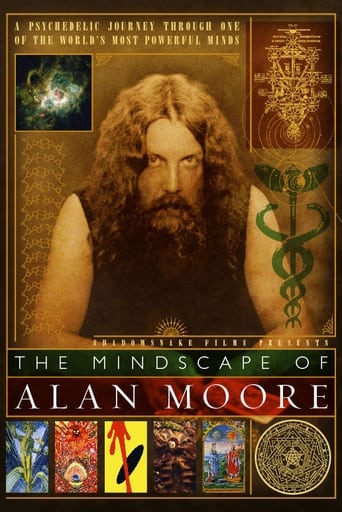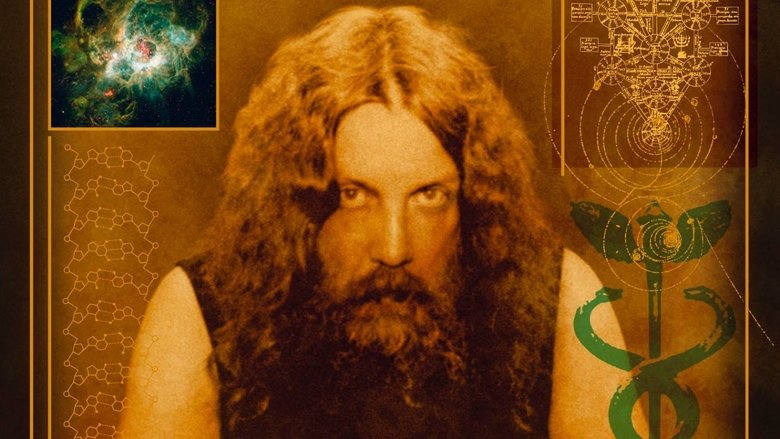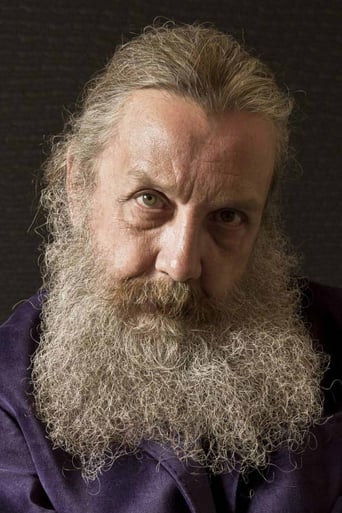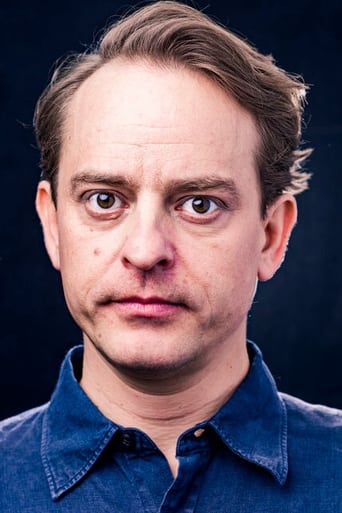The Mindscape of Alan Moore is a psychedelic journey into one of the world's most powerful minds; chronicling the life and work of Alan Moore, author of several acclaimed graphic novels, including "From Hell," "Watchmen" and "V for Vendetta." It is the only feature film production on which Alan Moore has collaborated, with permission to use his work. Alan Moore presents the story of his development as an artist, starting with his childhood and working through to his comics career and impact on that medium, and his emerging interest in magic.


Similar titles

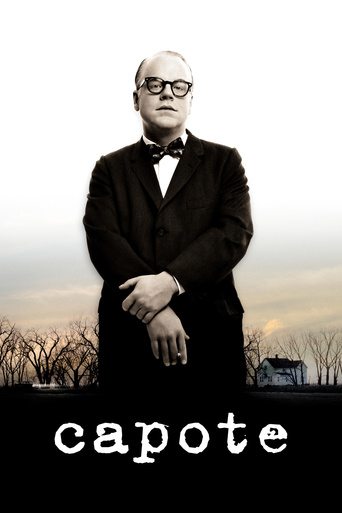
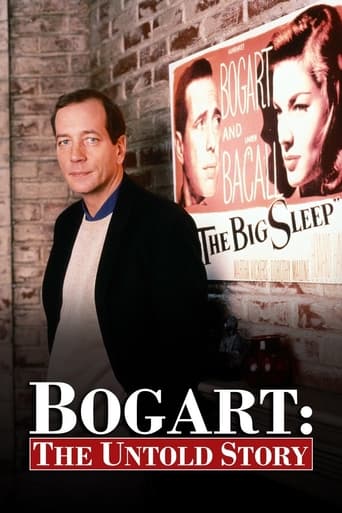
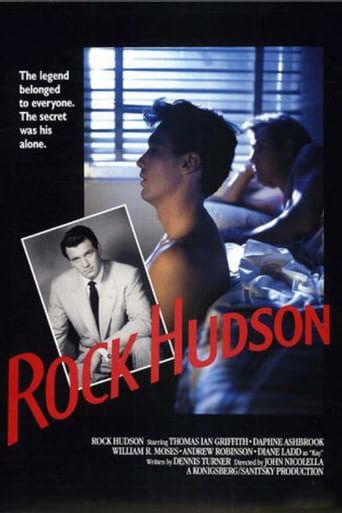


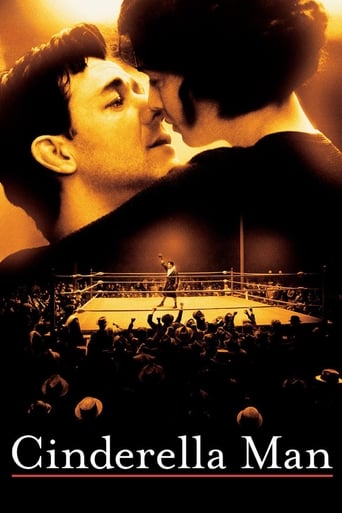
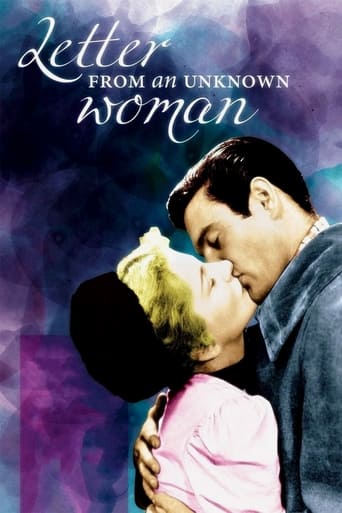


Reviews
This is Alan Moore talking about his life, his work and beliefs for 78 minutes. Its very informative look at why he does what he does and what is lying behind the stories that have become part of the popular culture. It's a heady mix that is sure to both enlighten and confuse (but in a good way.) I liked it and I know that I'm going to have to listen to it again to fully grasp everything that he's saying. The reason I say listen is that much of this program is static. It's a camera pointed at Moore who speaks, often as if he's giving a lecture. There are attempts by the filmmakers to spice things up by showing locations and panels from the comics or tarot cards, but for the most part all of the information is in Moore 's words. One also has to listen because Moore 's North of England accent can be a bit dense at times and it is possible to miss a word or two. (I would rather listen to Moore rather than watch him because I find his physical affectation a bit on the silly side. He is a grand eccentric and he plays it to the hilt with his wild man appearance and more jewelry then Zsa Zsa Gabor. I can't take him seriously as a person). If you like Moore and his work this is something you really need to see.
Basically all this film manages to do is prove how superior Alan Moore feels to everyone. Early in the movie he comments about his already huge ego as a 17 year old, and it seems that balloon has continued to become over-inflated throughout the intervening years.Moore does go into some detail about his childhood and how horribly bleak the world around him was - how he was saved by comic books and set about to write comics of his own. Interesting, but really of no value to anyone wanting to know 'how he did it'.The entire second half of the movie is Moore waxing poetic about magic, how he is a magician, how science knows and can prove nothing, and how much better his own ways are. He even goes so far as to quote a few others who he believes are "in the know" and then either overtly takes credit for their ideas or usurps them into a twisted notion he claims is his answer to life the universe and so on.Essentially, Moore seems to be trying to set himself up as a latter-day Alistair Crowley, rather unsuccessfully. As he goes on about his theories of meta-physics, pseudo-science, amateur psychology and spiritualism, it becomes quickly apparent that Moore not only wants, but craves attention - strange for a man who claims early in the film to have no use for his own celebrity.When I watched this film I thought I would get a look at how Moore created such amazing tales as V for Vendetta, From Hell, The Watchmen and others - instead, it just left me wondering how the poor fellow could have become so deluded about the world and his place in it.It will not surprise me to hear Moore has attempted to start his own cult, I just seriously doubt many people will be lining up to hear his brand of new-age meta-physical strangeness.He should have just stuck to comics...
It's okay, not as good "Crumb", and many other artist documentaries, for the same reason, that it is worth watching at all, that being that the film takes it's information almost completely from Moore's own mouth, in one interview which lasts the entire film. We get no context, explanation, or details which Moore does not provide, and though that's interesting, because he's notoriously private and rarely does interviews anymore, we miss out on a lot of information, not about Alan Moore the writer or Alan Moore the shaman/magician (which as he explains very clearly he feels are pretty much the same thing), but Alan Moore the man.We learn he was expelled from high school (he does not mention for selling LSD on campus), we learn he feels his comics are unfilmable(this same year this film was released he would be sued by Larry Cohen, for allegedly stealing "The League Of Extraordinary Gentlemen" from a script he wrote. And would later swear off "royalties" from any adaptation of his works. Then again how could we?), we learn nothing of his family life(he has two daughters, one is a comics writer herself. He is divorced, after a somewhat long term three-way relationship between him, his wife and his wife's girlfriend, all of whom lived together with their children, went awry.) None of which is mentioned.Moore says instead of having a normal "boring" mid-life crisis decided to "give his friends a fright and surprise by completely mad and declaring himself a magician" (also does not mention he worships a Roman Snake God named Glycon, whom he calls Sweety, and is also quite literally a puppet). It's the odd little bits like these, Moore mentions he's worked for over a decade on the pornographic "Lost Girls" but not that, throughout the course of the book, he became romantically involved with Gebbie(last year they married). How many porns become real life love stories? Anyway those are things I knew going in, which I thought were oddly omitted, and might have made the movie more personable, human, and effective.Moore is, despite, his seclusion, a witty, charming, and remarkably clear speaker. Most of the movie, is Moore discussing his belief and ideas concerning Magic, Human Evolution, Spirituality, and the role of the artist in society.Magic is often called "the art", and Moore takes this literally, Magic Gramoire is a simple way of saying "grammar", and the casting of spells, is simply to "spell", and by manipulating symbols and language(writing) produce a change in consciousness of the audience. Moore feels "advertisers" are the modern keepers of this symbolic magical language, a perversion he feels, which keeps us attached only to materialism and the psychical limitations of our environments.The most interesting part of the film is the end, where Moore talks about "Information Doubling" theory, where according to him sometime around 2015, human information, will be doubling every half second. Where literally every second, humanity as a whole, will be learning more in a single moment, than it has in it's entire history, at which point human culture goes from fluid, to boiling, to steam.Moore comes from North Hampton, which he calls "so inbreed the dogs have the same hair lip as everyone else in the family". We see the cold industrial city built out of the Ruins of a castle, and it's juxtaposed to the brightly colored American comic books, which served as an escape from bleak "material" world Moore found himself in as a boy(though if you were to read his novel "The Voice Of The Fire", he would argue, all of human history can be traced in some way to his hometown). That's the contradiction of Moore in general though, or at leas the one he sees in the world, alternating between magical almost Utopian romanticism and cynical, world weary, fatalism.If you have no idea, who or what an Alan Moore is, it's a good documentary, which explores his ideas and beliefs in detail (if it skirts his personal life), which some very at times moody and others psychedelic cinematography and juxtaposition of images. IMoore is one of my favorite writers, so personally I can enjoy just listening to him talk, but all and all, the film itself, just isn't as good as it's subject.Still I'm glad I watched it, and would recommend to anyone who could find a copy, especially if you like writing or art. A little disappointed with the form here, but non the less, inspired by the content....and more conflicted about wanting to see "The Watchmen" than ever before...
First I must confess that I am a huge fan of the works of Alan Moore, with which if you are not familiar include works such as Watchmen, V for Vendetta, From Hell, and Promethea. If you are familiar with his works only through the Hollywoodization of them, then I'm afraid you don't know Alan Moore very well. Every single adaptation of his works to film so far has stripped the 'Moore' out of the stories to make them palpable to, i don't know, commercial audiences. I recommend that you seek out the original comic formats for the stories to see the added depth that Moore put in the originals.However this movie isn't recommended for only those people interested in comic books. In fact people who don't know who Moore is, but are interested in Philosophy, Art, Aesthetics, Literature, Magic, and Religion should also watch this movie. For it is about the mind of a man who has in a manner chosen to live slightly to the left of convention, and observe convention, and then write about convention.His ideas are in my opinion, those of a modern day philosopher. A philosopher not in the relegated academic sense of the word, but a philosopher who found himself to be one through the life that he had lived. Moore prefers the term magician. But the distinction is arbitrary, and i think Moore would agree with me.
